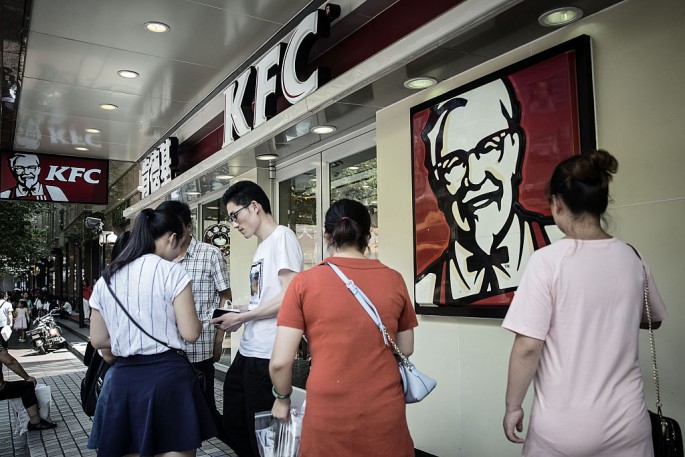Yum! Brands Inc's partnership with Alibaba's Ant Financial has put pressure on McDonald's Corp, which is in the verge of selling its business in China as both companies have realized that getting a Chinese business partner and franchising are the keys to growth in the country's fast food market, China Daily reported.
For both companies, the strategy will also help them stay on top of the fast food market, capitalize on growth in smaller cities and enhance their reputation.
Although Yum, which also manages Pizza Hut, has 7,200 outlets in the country, its market share dropped to 23.9 percent last year, from nearly 40 percent in 2012. McDonald's, on the other hand, has about 2,200 outlets nationwide but its share fell from 16.5 percent in 2013 to 13.8 percent, according to data from Euromonitor International.
According to the report, Yum has increased its online relevance faster than McDonald's when it sold shares of its business to private-equity firm Primavera Capital and Alibaba's Ant Financial, the country's leading payments platform with stake food-delivery website Eleme. This connection is seen to help Yum attract customers who want to order and pay for food via their mobile phones.
Yum will also gain the advantage of taking one of the country's top dealmaker through Primavera, with Fred Hu, a former chairman of Goldman Sachs in China, who will now serve as chairman of Yum China, which will become a separate company next month.
Although Ant and Primavera will buy only 6 percent minority share in Yum China, it is still seen as a step forward and a better move than McDonald's, which is having difficulty seeking a buyer for its business.
On the contrary, McDonald's does not intend to get its China operations listed in the country, as most of its restaurants in the Chinese mainland, Hong Kong and South Korea are directly owned by the company. However, it said in March that it wants local ownership for 95 percent of its restaurants in Asia.
The report however, said that McDonald's may find it difficult to hand over control to local owners since it may risk its reputation which has been marred by a food safety scare in 2014. It was reported in May that the company has implemented a strict deal condition which include a three-year ban on changes in senior management.
The said factors may deter potential bidders, which include only a few and has none of the capabilities that Ant has. Some of the bidders include China Cinda Asset Management, a bad-loan manager, and dairy producer Beijing Sanyuan Foods.
Sanyuan's largest shareholder is state-owned Beijing Capital Agribusiness Group, which manages some of McDonald's restaurants in Beijing. Chinese State conglomerate Citic Group, which has only a modest retail presence, is also in the roster of bidders.
But despite that, McDonald's is far from leaving its business in China as it is still the second-most-popular fast food brand, according to Euromonitor.



























